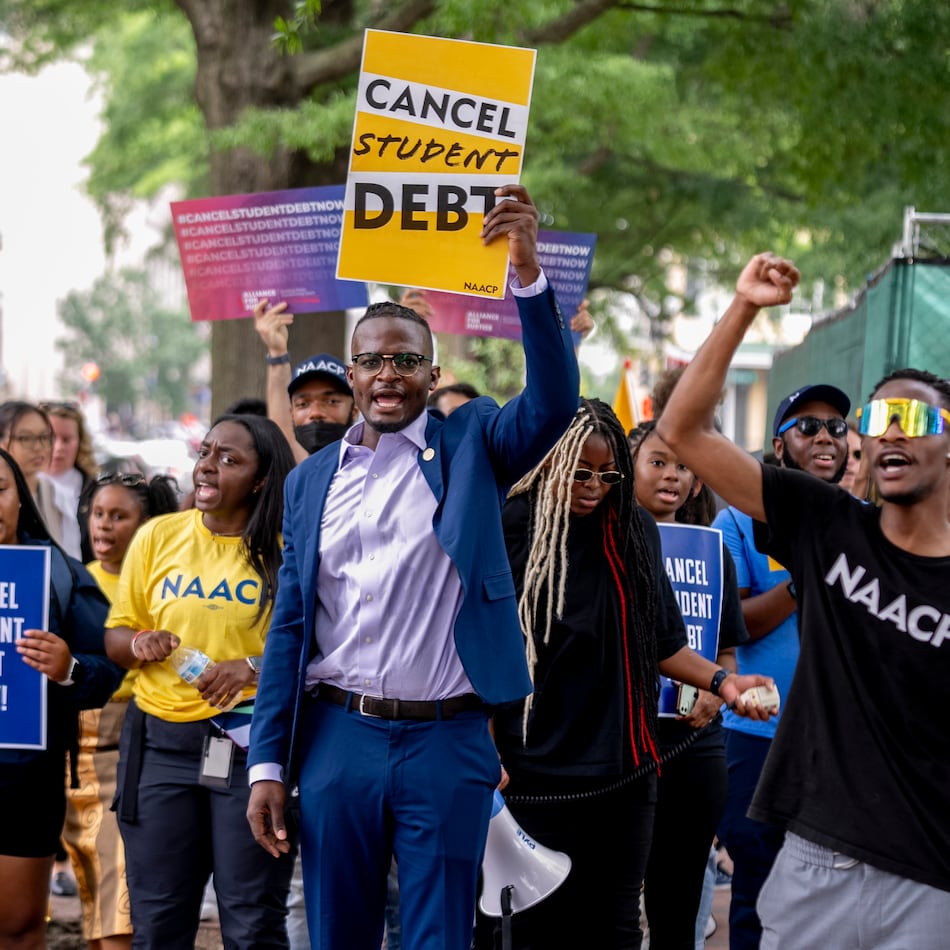The U.S. Supreme Court’s decision to strike down the landmark Roe v. Wade case and end constitutional protections for abortion will bring seismic changes to Georgia, a closely divided battleground state where political parties have clashed over abortion rights for decades.
The Supreme Court’s 6-3 ruling paves the way for an anti-abortion measure signed by Gov. Brian Kemp in 2019 to take effect. Long maligned by Democrats, the law would ban abortions after a doctor detects fetal cardiac activity – as early as six weeks into a pregnancy.
The decision sharpens the political divide over abortion months before midterm elections for Georgia governor, a U.S. Senate seat that could decide control of the chamber and down-ticket races for statewide, congressional and legislative offices.
And it’s poised to reframe the narrative of campaigns focused largely on economic issues such as higher fuel prices and soaring inflation. Senior Democrats have predicted the ruling will mobilize voters, particularly women, who saw such a ruling as unthinkable just a few years ago.
“This will turn everything on its head,” said state Sen. Jen Jordan, the Democratic nominee for attorney general. “It’s open season on the courts, on peoples’ personal rights and their personal health.”
In a series of statements and social media posts, Republicans celebrated the ruling and anticipated that it would energize conservatives who have long sought to overturn the 1973 landmark ruling.
“This Supreme Court decision sends the issue of abortion back to the states, which is where it belongs,” said Republican Senate hopeful Herschel Walker, who supports banning all abortions, including in the case of rape or incest. He added that he “won’t apologize for erring on the side of life.”
Democratic U.S. Sen. Raphael Warnock, who often describes himself as a “pro-choice pastor,” said the decision departs from “our American ideals to recognize and protect basic rights.”
“I’ve always believed a patient’s room is too small a space for a woman, her doctor and the United States government,” said Warnock. “The misguided decision is devastating for women and families in Georgia and nationwide.”
In the race for governor, the ruling brought to the forefront Kemp’s decision to make passing an anti-abortion law the signature move of his first year in office. The Republican said he hopes the law “will be fully implemented and ultimately protect countless unborn lives here in the Peach State.”
Democrat Stacey Abrams, waging a rematch against Kemp, promised to fight the “forced pregnancy” laws if she’s elected. She blasted the Republican, saying he was putting politics over the health of Georgians.
“As a woman, I am appalled. As a Georgian, I am enraged. As an American, I am disgusted by this abdication of all we hold dear,” she said. “We are better people than this, and we deserve to have our freedoms protected, not stripped away.”
The decision won’t just intensify partisan clashing. It’s also likely to inflame internal political divides. Some Republicans have pushed for legislation that would ban all abortion. Others argue the focus should stay on implementing anti-abortion laws on the books and defending against backlash from abortion rights supporters.
“The work is not done,” said Cole Muzio of the conservative Frontline Policy Action group. “The battle is entering a new stage, and we are committed to complete and total victory.”
Democrats, meanwhile, will be under more pressure to pass federal legislation that would codify the right to abortion — even if it means rolling back filibuster rules. Warnock is among those who have called for rolling back the 60-vote Senate threshold to clear the way for a vote to preserve access to abortions.
‘Heartbeat’ clash
The state’s anti-abortion measure, dubbed the “heartbeat law” by Kemp and his Republican allies, was at the center of emotional debate in 2019 before the courts blocked it from taking effect.
That legislation, too, inspired promises from supporters and detractors to rush to the ballot box to punish or validate politicians who backed the law.
An Atlanta Journal-Constitution poll in January showed about 68% of Georgia voters opposed overturning Roe, including about 43% of Republican respondents. Asked specifically about the state’s restrictive anti-abortion law in 2019, voters were more closely split.
For many Republicans, the ruling was vindication of a decades-long strategy to install conservative jurists on the U.S. Supreme Court while chipping away at abortion protections on the state level. U.S. Rep. Buddy Carter of Pooler was among many Republicans who declared “life wins.”
“The heartbeats heard in ultrasound appointments have now been heard by the Supreme Court, and we finally have a nation that honors the humanity of unborn children,” he said.
Democrats prepared for an unpredictable new phase that will unfold at the ballot box, in courtrooms and in doctor’s offices. Some signaled that abortion could become a unifying theme for a party struggling with its response to economic concerns and gridlock in Washington under President Joe Biden.
“Bodily autonomy is a fundamental human right,” said Ruwa Romman, a Democratic candidate for a Georgia House seat in Atlanta’s suburbs. “There is no middle ground on this issue.”
Jordan, whose speech opposing the state’s anti-abortion law catapulted her to national prominence, said the opinion ensures Georgia is the “next battleground for reproductive freedom.”
“Republicans have worked for years to impose these incredibly radical views on abortion,” said Jordan. “You can’t play games with peoples’ lives and their rights. And that’s what the Supreme Court has done.”
About the Author
Keep Reading
The Latest
Featured



